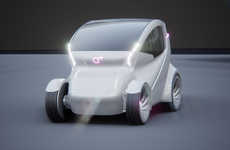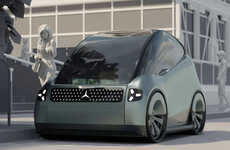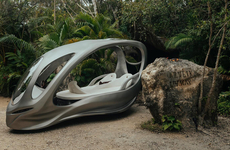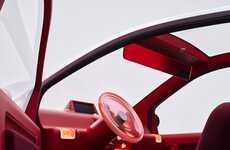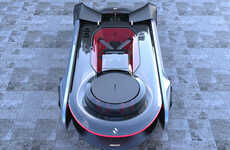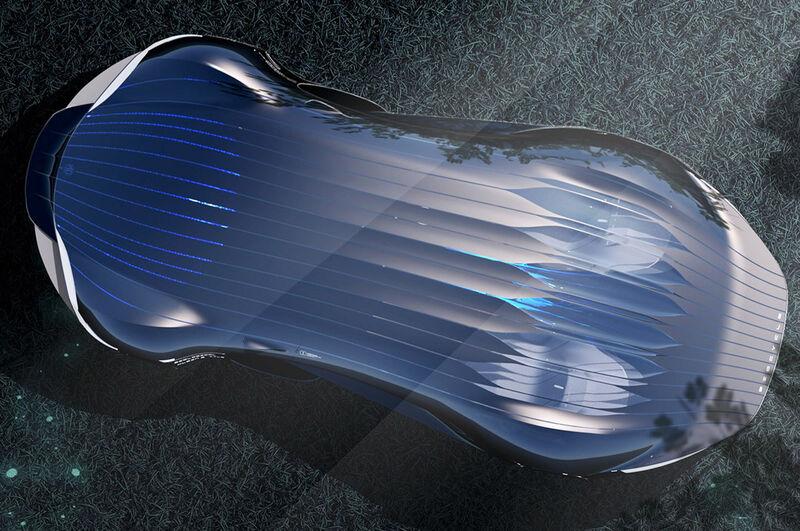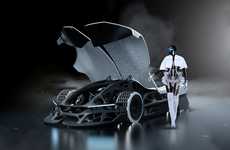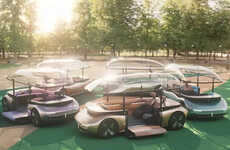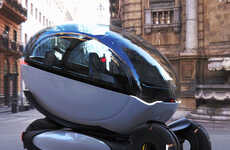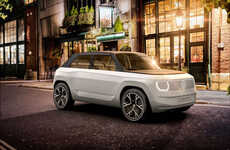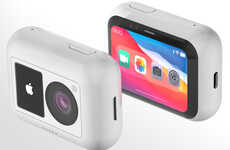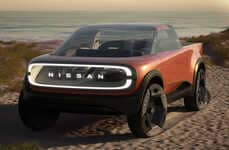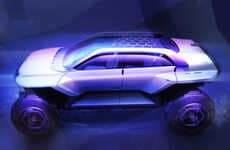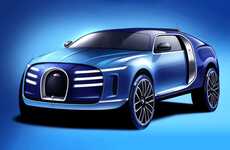
The Conceptual 'Microbial Loop' Car Features Bioluminescent Microbes
Michael Hemsworth — July 2, 2021 — Autos
References: yankodesign
The conceptual 'Microbial Loop' car has been designed by Jianhui Zheng as a futuristic vehicle that incorporates elements of the natural world into the final product. The vehicle is characterized by its curved surfaces and form, which aid with aerodynamics to help it easily achieve high speeds without any hesitation. The structure of the vehicle's core is inspired by the Klein bottle mathematical concept and thus creates an interconnected aesthetic that will envelop up to two people.
The conceptual 'Microbial Loop' car also features an unexpected element in the design, which consists of bioluminescent microbes that will light up in the darkness and move swiftly to create something of a light show. This incorporation of natural elements speaks to the increased demand amongst consumers for a focus on biophilia in modern product design.
The conceptual 'Microbial Loop' car also features an unexpected element in the design, which consists of bioluminescent microbes that will light up in the darkness and move swiftly to create something of a light show. This incorporation of natural elements speaks to the increased demand amongst consumers for a focus on biophilia in modern product design.
Trend Themes
1. Biophilic Design in Transportation - There is an opportunity for the transportation industry to incorporate natural elements such as bioluminescent microbes in their designs to align with the growing demand for biophilic products.
2. Organic Geometry in Product Design - Designers can explore the use of curved surfaces and forms inspired by natural shapes and mathematical concepts, like the Klein bottle, to create aerodynamic products with unique visual appeal.
3. Integration of Technology and Nature - As seen in the Microbial Loop car concept, there is potential for innovation at the intersection of technology and nature, creating products that are both visually stunning and functional.
Industry Implications
1. Automotive - Manufacturers can adapt biophilic design in car models with organic shapes, allowing for a more comfortable and appealing driving experience and added emphasis on sustainability.
2. Product Design - Designers can incorporate elements of biophilia and organic geometry inspired by nature in designing products, particularly for the purpose of energy-efficient and sustainable design.
3. Lighting Design - Lighting designers can explore the use of bioluminescent technology to create innovative lighting fixtures for indoor and outdoor spaces.
4.8
Score
Popularity
Activity
Freshness

